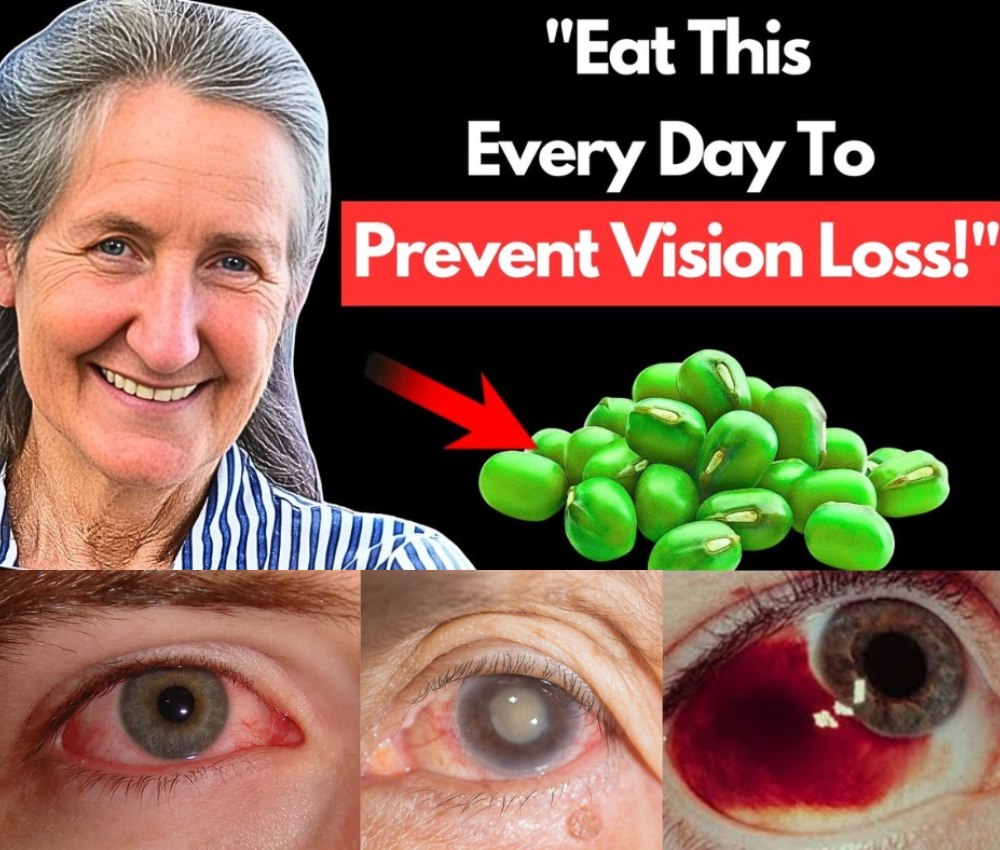
Our eyes are one of the most precious and delicate parts of the body, yet we often take them for granted. Maintaining good eye health is crucial for clear vision and for preventing common age-related eye conditions like macular degeneration, cataracts, and glaucoma.
While regular eye exams and protective habits like wearing sunglasses are essential, what we eat also plays a major role in how well our eyes function. Some foods are especially beneficial and can help protect and enhance our vision.
Below are the Top 5 foods that eye doctors highly recommend for maintaining strong eyesight and long-term eye health. These are loaded with essential vitamins, minerals, and antioxidants that support and protect your eyes.
1. 🥕 Carrots (Rich in Beta-Carotene and Vitamin A)
- Why they’re great for your eyes: Carrots are famous for boosting eye health. They contain beta-carotene, a precursor of vitamin A, which is crucial for good vision—especially in low light.
- How they help: Beta-carotene is converted to vitamin A, which is needed for the production of rhodopsin, a pigment that helps with night vision. A lack of vitamin A can cause night blindness.
- Best way to enjoy: Eat them raw, cooked, or juiced. Combine with a healthy fat like olive oil to enhance absorption of beta-carotene.
2. 🥬 Leafy Greens (Spinach, Kale, Swiss Chard)
- Why they’re great for your eyes: These greens are full of lutein and zeaxanthin, powerful antioxidants that protect your eyes from harmful blue light and oxidative damage.
- How they help: These antioxidants accumulate in the macula of the eye and filter out harmful light, reducing the risk of macular degeneration and cataracts.
- Best way to enjoy: Add them to salads, smoothies, or cook them lightly by steaming or sautéing to retain nutrients.
3. 🍠 Sweet Potatoes (Packed with Beta-Carotene)
- Why they’re great for your eyes: Like carrots, sweet potatoes are rich in beta-carotene, which helps preserve night vision and overall eye health.
- How they help: Beta-carotene supports healthy retinal cells, and sweet potatoes also contain vitamin C, which strengthens blood vessels in the eyes and helps prevent cataracts.
- Best way to enjoy: Roast, bake, or mash them—or use in soups and stews for extra nutrition and flavor.
4. 🐟 Fatty Fish (Salmon, Mackerel, Sardines)
- Why they’re great for your eyes: These fish are loaded with omega-3 fatty acids, especially DHA, a crucial component of the retina.
- How they help: DHA supports retinal structure and function, helps prevent dry eyes, and lowers the risk of macular degeneration and cataracts by reducing inflammation.
- Best way to enjoy: Grill, bake, or add to salads. If fresh fish isn’t available, canned options like sardines or mackerel work well too.
5. 🫐 Blueberries (Packed with Antioxidants)
- Why they’re great for your eyes: Blueberries are antioxidant powerhouses. They contain vitamin C, vitamin E, and flavonoids, which combat oxidative stress and inflammation in the eyes.
- How they help: Improve blood flow to the eyes, protect retinal cells from free radical damage, and reduce risk of cataracts and age-related macular degeneration (AMD).
- Best way to enjoy: Eat them fresh or frozen. Add to smoothies, yogurt, oatmeal, or enjoy as a healthy snack.
🎁 Bonus: Other Eye-Healthy Foods to Include
- Eggs: Rich in lutein, zeaxanthin, and zinc—protect the retina and support clear vision.
- Citrus fruits (oranges, lemons): High in vitamin C, strengthen blood vessels in the eyes.
- Tomatoes: High in lycopene, a strong antioxidant that protects the eyes from damage.
✅ Conclusion: Feed Your Eyes Well
Good vision isn’t just about external care—a nutrient-rich diet plays a powerful role in supporting your eye health. By regularly eating foods like carrots, leafy greens, sweet potatoes, fatty fish, and blueberries, you’re giving your eyes the tools they need to stay healthy and strong.
If you have ongoing vision problems or discomfort, consult an eye care professional. Your eye health is an investment—start protecting it today!